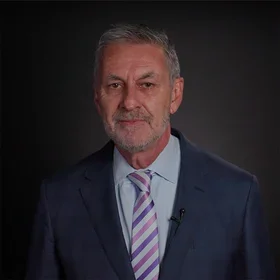
- Masterʼs Degree
Full-Time
Part-Time
- Summer term study is optional.
- Online course options are available for on-campus students.
Master of Science in Technology Management
Columbia University’s M.S. in Technology Management (TMGT) equips graduates with applied technology skills through research and industry insights to lead digital transformations and innovation in organizations across industries with an ethical leadership lens to achieve high impact and measurable results for today and prepare for the future.
The 4 Pillars of Technology Management
- Technology Strategy: Tech Evolution, Leadership, Governance, Tech Stack, Organizational Design, Culture, Ethics, Financials, Risk and Compliance
- Digital Transformation: Product Development & Management, Systems Development Lifecycle, Tech Operations, Enterprise Architecture, IT Capabilities, Change Management
- User-Centric Design: Entrepreneurship, User-centric design/UX, Tech Enablement & Adoption, Social & Sustainable Innovation, Tech Marketing, Success Measurement, and Value Impact
- Emerging Technologies: AI/ML, Cybersecurity, Blockchain, Quantum Computing, Edge Computing
These four pillars are delivered through required core courses and complemented by electives aligned with students’ career goals. Whether you're an early-, mid-, or advanced-career professional, our graduates typically take on roles ranging from analyst to management positions across industries in the areas of: Technology Development and Infrastructure Management, Product Management, Technology Consulting, Tech Start-Ups, and other technology related roles with focus on innovation and digital transformation.
Flexible Pathways to Degree
The fast-growing Technology Management program, guided by Columbia’s School of Professional Studies Scholar-Practitioner model, bridges theory and practice by integrating cutting-edge, real-world applications into the classroom experience. Our program offers flexible pathways to the Masters of Science in Technology Management degree.
The In-Person pathway offers full-time and part-time options, with courses held on-site at Columbia University’s Morningside campus. Students join one of the most diverse communities at the School of Professional Studies—representing countries across the globe, professional experience from every sector, and academic backgrounds spanning computer science, social sciences, and the liberal arts.
Located on Columbia’s historic Ivy League campus in the heart of New York City, students are immersed in one of the world’s most global and dynamic tech hubs. The In-Person Pathway provides unparalleled access—to industry events, site visits, networking opportunities, and internships throughout the city’s thriving technology ecosystem.
The M.S. in Technology Management Program (Full Time) is a STEM-designated program.
The Online pathway is a part-time option designed for working professionals who want the rigor and community of Columbia University—without the need to relocate. Students can study online from anywhere in the world, with regular in-person multi-day residencies in New York City that foster connection, collaboration, and real-world learning.
Through the School of Professional Studies’ immersive digital learning environment, students engage in live, interactive classes led by Columbia faculty and industry experts. The Online Pathway provides direct access to the same curriculum, faculty, and professional network as the in-person experience, with the flexibility to balance coursework alongside a full-time career.
| Program Option | Required Experience | Course Formats | Time Commitment |
|---|---|---|---|
| Master of Science (Full‑Time): On‑campus |
|
|
|
| Master of Science (Part‑Time): On‑campus |
|
|
|
| Master of Science (Online) |
|
|
|
Connect with Us
Learn more about Technology Management at Columbia University School of Professional Studies, or contact the program admissions counselor.
Request more informationStudy with Us
As admissions to our programs are highly competitive, we encourage you to apply as soon as possible. Learn more about the application process, deadlines, and requirements.
Learn moreApply
We encourage you to apply as soon as possible.
Request Information
Stay in the know with updates sent straight to your inbox.





